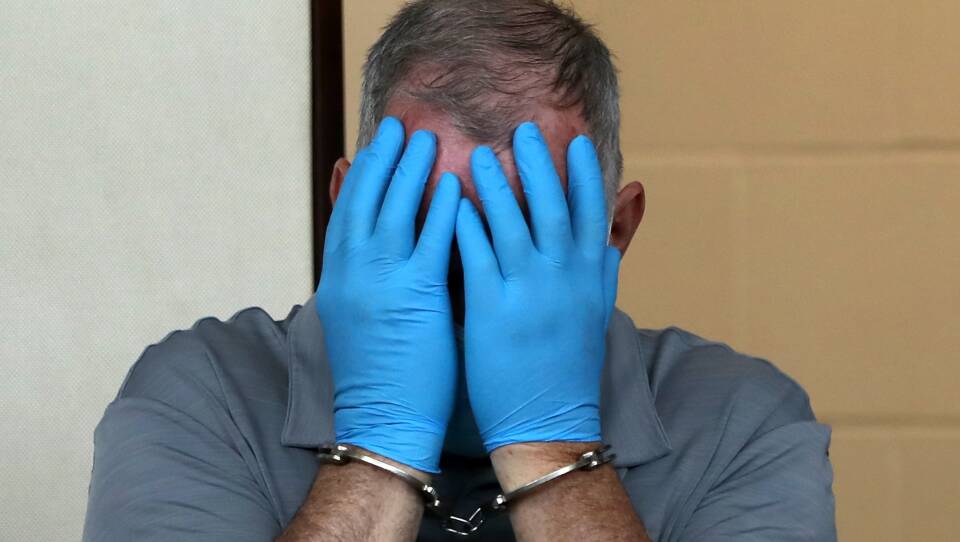Mayor Michelle Wu released Thursday what appears to be the complete Boston Police Internal Affairs file on former officer and now-convicted child sex abuser Patrick Rose, Sr. Though the file reveals an affidavit-backed threat of legal action from the Boston Police Patrolmen’s Association on Rose’s behalf, it fails to answer the central question of why Rose ultimately survived more than 20 years on the force, several of which he headed the union that advocated for him.
Rose, who pleaded guilty to 21 counts of child rape and assault on multiple victims in April, was initially accused of assault by a child under the age of 14 in 1995. The force attempted to bring a criminal complaint against Rose within days of receiving the report, but it was eventually dismissed.
More Politics
Despite the police department’s investigation and eventual substantiation of that early claim, documents released Thursday showed a 16-year gap between the time Rose’s union attorneys were denied a grievance with the City’s Office of Labor Relations in May 1998, and the time Rose was elected President of the Boston Police Patrolmen’s Association in Dec. 2014.
Wu acknowledged that the documents do not provide all the answers.
“Regrettably, while the IA file reflects the full investigation into Rose, neither the IA file, nor the other city records we are releasing here document the decision not to discipline or terminate him,” Wu wrote in a letter previewing the document dump to the Boston City Council. “To the best of our knowledge, no such city documentation exists.”
Former Boston Police Commissioner Paul F. Evans, Jr., who was notified of Rose’s internal affairs results in 1996 and held the authority to further discipline or terminate him, did not respond to GBH News’ request for further comment Thursday.
Evans had previously called for the release of the full Rose file, contending that the department did all it could to hold Rose accountable.
Wu’s release of documents is a rare for a Boston mayor, and comes as a number of political factors collide to make it opportune. She is 205 days into a four-year term and attempting to build a reputation of transparency that she pledged to bring to the office on the campaign trail; she is nearing her self-imposed deadline to hire a new, reform-minded police commissioner; and, she is being called by police unions to the bargaining table to hammer out a new contract.
The mayor has faced increasing pressure to release the full, unredacted Rose case file, including a lawsuit.
Speaking to reporters Thursday, Wu pointed to the fact that other administrations have “reviewed and weighed” the balance between confidentiality and transparency when it comes to case files such as these.
“In striking that balance at every step, we sought to ensure that we are providing privacy protections while moving forward with transparency to the fullest degree possible,” Wu said.
Beyond transparency, Wu also said that while the key question remained, she wanted the Rose case high in the public consciousness to demonstrate the need for police reform.
"My hope is that the release of this fuller file shows the larger context and continued urgency for the city of Boston and our police department to have the authority and the resources to take urgent action when there is evidence of criminal conduct, and to be able to immediately terminate officers after a violation of the public trust has been found,” the mayor said.
Wu went on to say that, as the city gets closer to selecting a police commissioner who will help negotiate a collective bargaining agreement, setting aside space for prompt investigations and clear consequences for offenses is crucial.
“An objective disciplinary matrix, as has been called for by the city’s police reform task force, and [the Office of Police Accountability and Transparency] and myself on the campaign trail would begin to remove shades of gray and delay,” Wu said, pointing to one of her solutions for the situation.









